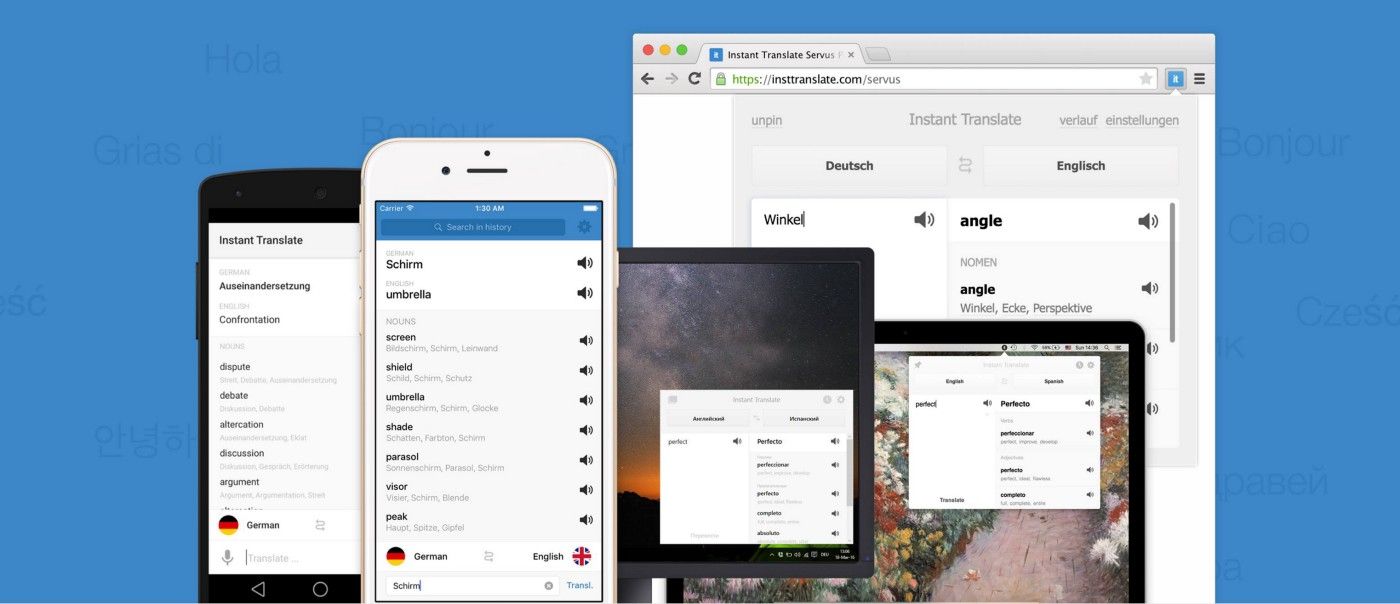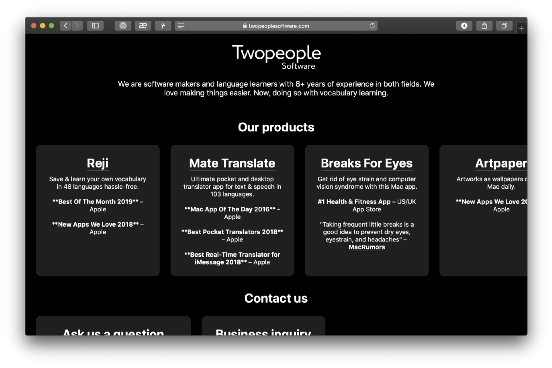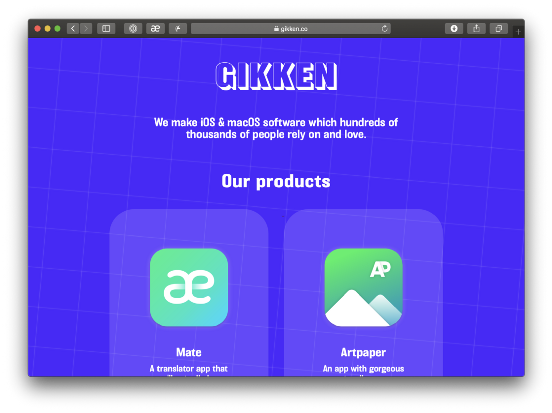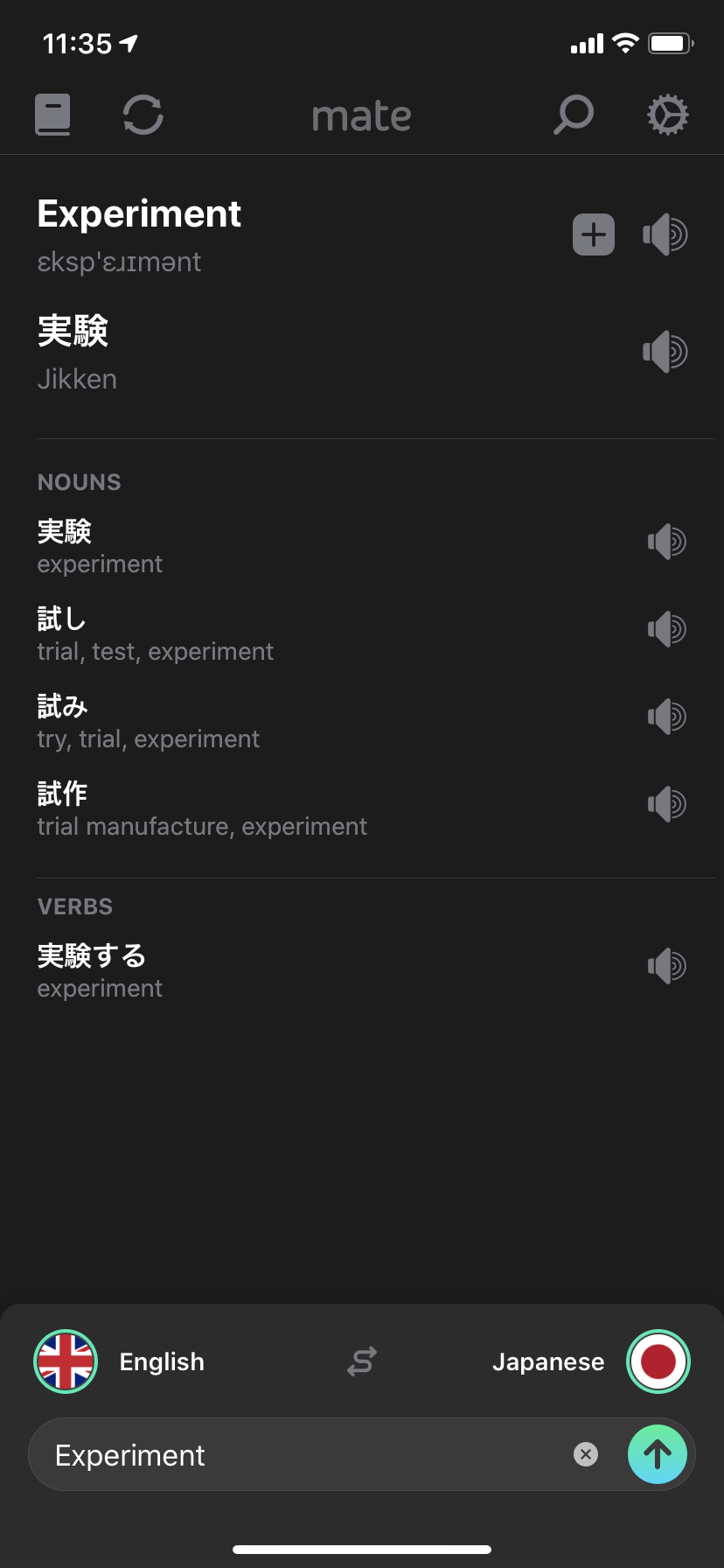I decided to wrap up our recent rebranding which we didn’t really explain anywhere. We just rolled out a new site and, all of a sudden, started branding all our apps as ‘Made by Gikken’. It was a very important step for us, so I don’t think there should be any confusion related to it. I’ll unveil the reason, consequences, and behind the scenes of this name-change below.
On October 31, 2019 Twopeople Software officially became Gikken.
Not because someone acquired us or invested in us (except for users, of course!). It was our seasoned idea of re-incorporation in Berlin, Germany. So, we just switched a legal entity for our business. It’s still me & my co-founder who are in charge of all decisions.

Let’s take a glance at Twopeople Software’s (TPS) history and then I’ll explain what influenced our decision to re-create TPS as Gikken in Berlin.
A very brief history of Twopeople Software
TPS started back in July, 2016. By that time, me & Andrew already made our first app together. Funny enough, we started working together after I dropped out of school, where we met in Kiev, Ukraine, and moved to Vienna, Austria. The first app we made was Mate Translate for Mac.
For almost one year, we didn’t have a legal entity and were trying to sell the app on the Mac App Store using Apple’s individual developer license. We weren’t making money, so there was nothing to pay taxes on (in case Finanzamt — the Austrian tax office— is reading this).
In 2016, I gathered a 4-person team of classmates. There was me, iOS/macOS developer, Android developer, and a Windows developer. We wanted to make the best translation ecosystem for all devices out of our then-only product Mate Translate. It may sound like a successful (or a VC-funded) team but we were neither of that. I offered everyone a revenue-share partnership — i.e. they’d get 40% of revenue from the app they were in charge of. After around a year of work, the money was still not flowing in, Android and Windows developers also lost interest. The TPS team shrank to just two people: me & Andrew who was previously only in charge of iOS and macOS apps.

And that’s how it still looks today. We went a long way together. We launched 3 new apps. We tried to sell hard-copy artworks. We hired people. We fired people. We tried to raise money. We found our uniqueness in being self-funded, so we advocate for bootstrapping now.
Why did we decide to move
When TPS stopped being a side-hustle and started taking shape of a serious business which requires our full-time attention, we committed to an idea that we want to be in the same place to grow the business.
I remember Andrew was visiting me in Vienna in May 2018, we were invited to Pioneers Festival — a major startup conference in Austria — a local version of TechCrunch Disrupt, if you want. That was the turning point when we decided that Vienna wasn’t a good candidate to host our HQ at all.
The main nags were: an incredibly weak software-making community and general conservativeness towards tech. I don’t want to be hopping on a plane every time I want to go to an iOS development conference or meet up with a successful developer from the community. So, we decided to pick another city. After all, we were (and are) young & flexible enough to be able to pull off a move hassle-free. It was a good chance not to get bound to one place and realize you’re unhappy at some point.
So, we started thinking about other cities where there would be a strong tech community (in other words, the more prominent software we like— preferably B2C — was made by a team based in a certain city, the better), a good life quality, its affordable cost, and, desirably, there would no visa requirements.
American cities like San Francisco or New York offer amazing opportunities when it comes to tech and innovation. However, for us as non-Americans, the first feasible complication would be relocation itself as we’d need a visa. Secondly, those cities are just too expensive. We aren’t living on VC dollars, though. So, we lined up major European tech cities: Berlin, London, Paris, and Amsterdam. They’re all equally good in terms of tech-savviness of people living there, and quality of life. We crossed the last three off the list because they’re just too expensive. Thus, we were left with Berlin. In our opinion, it offered (and still offers) the best trade-off between cost of life (appr. 2.5x cheaper than London or Paris or SF or NY) and the amount of tech-related stuff going on here.
Differences between TPS & Gikken
I’d put it this way: Gikken is a more mature version of Twopeople Software. It’s TPS with a clear(er) vision and values. At TPS, we went a long way from making browser extensions to macOS apps to iOS apps to an Android app to even a Windows app. At some point we got sold on the VC trend and wanted to raise money (the furthest we got was a few meetings with VCs and a Y Combinator interview). Generally speaking, we were making the first steps in software business and didn’t always know what we were doing.
The main difference though is that at the times of Twopeople Software the company was kind of a grey eminence. We didn’t bother to build company’s brand at all. Users who were using Mate most likely didn’t know that there’d been some company called Twopeople Software behind it. Obvious enough, if someone came to use Mate, they didn’t know about our other apps, either.
That’s bad for a bunch of reasons: if someone installs our app and likes it, they’ll be more likely to purchase our other products — thus, it decreases the customer acquisition cost and increases the chances of getting 1,000 True Fans — which is a good base for any business. It’s also bad in the long term run because we had to market every app independently — as if it were our first product, basically, even if our other product is loved by millions.
From now on, we market Gikken in the first place. It’s Gikken that made Mate, Reji, Artpaper, and Breaks for Eyes. And if we launch something new, you’ll be the first to know.


And this century’s main mystery… What does Gikken mean
Unlike Twopeople Software (which, obviously enough, means that 2 guys are making software), Gikken may sound a bit offbeat, as a made-up word. In fact, it is, but not in a way that a cat jumped on the keyboard and ‘gikken’ came out.
You’ve learned before that being offbeat is part of our strategy to stand out among all the “SomeEnglishWordsGluedTogether Software” companies. We wanted it to be concise and memorable. Hence, it couldn’t be an English word because all English words are already taken. We also wanted our new company name to reflect our core values and not be bound to any of our products. As the experience showed us, time changes very rapidly and projects we may be betting on now can be shut down some time later. We’re building a company to last, so the name had to be product-independent, too.
I was testing something in Mate once and noticed that many Japanese words actually sound irresistibly cool. Thus, we turned to the Japanese language. We started translating our core values from English to Japanese: quality, reliability, experiments, openness, transparency, etc.
These attempts yielded quite a good result — Jikken, which means ‘an experiment’. It sounds quite harsh but reflects our desire to experiment as much as we can, so we decided to go for it with a little modification. We softened it a little by replacing J with G. Coincidentally, a word ‘geek’ which also applies to us starts with the same letter.
Geek + Jikken = Gikken, Experimenting Geeks. G is pronounced as in GIF.

We’re a super transparent company, so…
at any time, you can ask us a question on Twitter, via other means, read more about us, apply for our job openings, follow Alex, follow Andrew, and of course, download our apps.